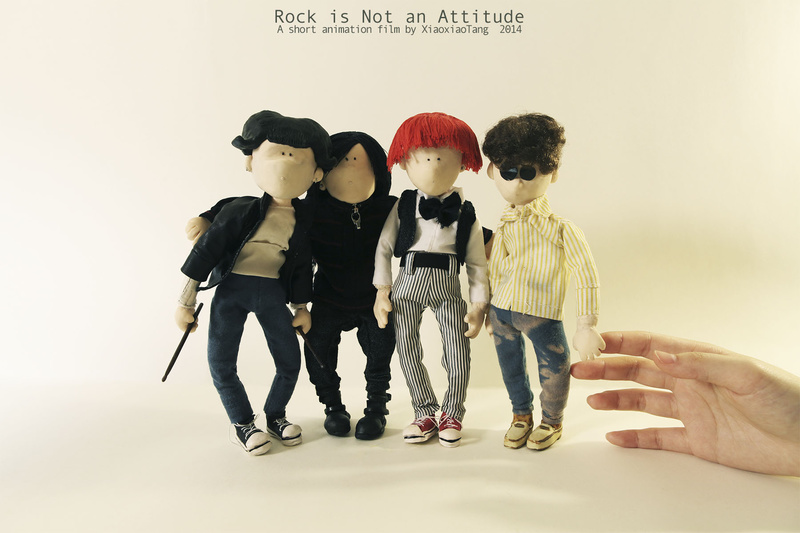ROFFEKE: “Time is eternal” is a visually stunning work of art. The story behind the glory is usually inspiring so please share some of the challenges you faced as you were bringing this powerful film to life and also some lessons you learned?
 |
| Daniel Lir and Bayou Bennett |
DANIEL AND BAYOU: The performance genius of the film, actually, is that Berite Labelle plays five unique characters in "Time is Eternal".
This challenge put our filmmaking to the highest test to show dialogue scenes where Cleopatra, Queen of Egypt seamlessly talks to women's rights activist and educator, Mary Wollstonecraft as well as elaborate dance scenes with Berite playing all roles. Bayou studied movies like Flashdance to see how to expertly work with body doubles and we perfected it in the film. It took a great amount of technical skill, knowledge of lighting and correct composition and previsualization to make this flow together perfectly. This taught us that exceptional filmmaking is about study, study, study, testing and an A list team
The second big challenge was in finding a location so stunning as to represent the world of the film. It had to embody the worlds of both of these deep and fascinating historical characters. The universe of the production really came together when we found the location of the Paramour which is a work of art. The owner traveled all over Europe and the world collecting high art paintings, furniture, design and art objects- it was naturally the perfect location for the home of the writer's character and the world of the film. It was shocking for us as creators that some of the props that were in the script were naturally existing at the Paramour-it was pure magic.
For Daniel Lir having worked with fashion icons, Oscar de la Renta, Carolina Herrera, Bella Hadid, Patricia Field who does the clothing for the Netflix hit series, "Emily in Paris", it was a huge challenge to interpret Cleopatra in a novel way. The film "Cleopatra" starring Elizabeth Taylor was such a work of art in the 1960's, how could we give her an imaginative modern twist and not be slaves to what came before? It took the inspiration of Middle Eastern designer Zuhair Murad and a huge amount of visual research to re-imagine Cleopatra and interpret Mary in a highly memorable way. With the genius of our stylist Wilford Lenov, we decided conceptually to represent both characters in gold. Cleopatra in a bold, shiny luxurious gold and Mary Wollstonecraft in a soft, delicate white gold with a custom gown co-created by designer Michelle Hébert. We learned from all this again that study, study, study was key and working with the best and most talented artists allows you to reach the highest creative heights.
Lastly, it was a big challenge as Directors to make every frame look like a painting which was our ultimate goal. All with the purpose of alleviating the suffering of people from the pandemic through beauty. With the help of Michael Rizzi, our cinematographer, our art department team and the wardrobe styling of Wilford Lenov (Bebe Rexha, Saweetie), the visuals were awe-inspiring.
ROFFEKE: “Text me” was your first film as a duo. If you had the experience and resources you had for “Time is eternal” what would you change about “Text me”? What would you not change?
DANIEL AND BAYOU: This is one of the very best questions we have ever been presented with. Bayou feels she would have liked to film the characters in their own lives before they meet each other on their blind date so that we can better understand their journey and the pre-conceptions they had of each other before they met.
We both would have liked to have a location that was a stable one for us to shoot in. We loved the restaurant visually so much but there was something sketchy about the owner and we didn't really have money for a location fee along the lines of what is normally paid for location fees. So during the production, the owner became really difficult to work with and put a lot of stress on the production which made creativity strained. The mafia theme of the film became real!!
"Text Me" is a film we still celebrate to this day and a film that has truly captured the texting and social media generation. We are very grateful for having been the first ones to show texting on screen in a film and the minimalism of the film is perhaps what makes it so brilliant so in the final analysis, we love the film as-is.
ROFFEKE: Bayou Bennett, in your Donut Princess interview “How to build your brand with your significant partner”, you said you were a teacher in Jordan, Amman. What did teaching teach you? What skills did teaching give you? What lessons did you learn?
BAYOU BENNETT: It taught me that all people have different needs, points of view and cultures and you have to really understand these aspects to do the best job as a teacher. I arrived as a young WOMAN in a culture often dominated by men, there was inherent prejudice. I learned to be the best I could be despite obstacles and deliver the best and most caring education I could and viewpoints shifted and changed. I was accepted and loved and seen for who I am. That is the magic of education in that you break down barriers and open minds to new ways, new methods of living and a bright new future.
ROFFEKE: You are a couple, parents and co-workers. In the same Donut Princess interview, Bayou, you said that you navigate this situation by wearing different hats (mother, wife, co-worker) at different times. How else do both of you maintain your work-life balance? How do you take care of your mental health?
DANIEL AND BAYOU: Yes, this is so very important. We do many things to achieve sanity and balance in this wild, rushing and demanding world. We eat very healthy, nutritious food, we surround ourselves with a very inspiring, able and positive team and don't associate with negative "it can't be done people", we exercise frequently with Daniel doing martial arts and also follow the wonderful Way to Happiness which helps us to make the right choices in all areas of life.
https://www.thewaytohappiness. org
ROFFEKE: Your thoughts on artificial intelligence, virtual reality, augmented reality, the metaverse and the future of filmmaking?
DANIEL AND BAYOU: This is an area we are just entering and are fascinated by it. William Gibson's novel "Neuromancer" changed Daniel's life and he also worked for legendary director Ridley Scott who directed "Alien" and "Blade Runner" after graduating from NYU Film School. Ridley has been a giant influence on Daniel as a Director and successful business person. I think in the next couple of years you will see a science fiction project from us but as with every project by the Dream Team Directors it will be thought-provoking, inspiring and open your eyes in new directions. Thank you so very much for this interview and for featuring our film "Time is Eternal" in your amazing film festival.


































































































































































































